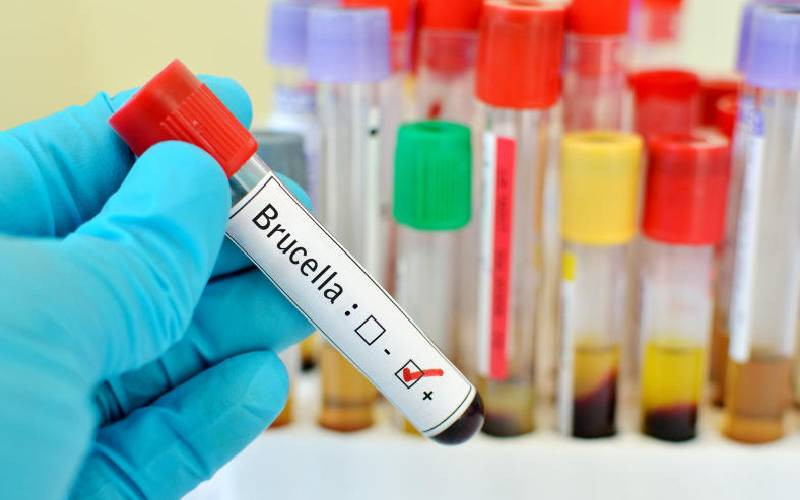By Joe Kiarie
Kenyan scientists have now come out to strongly criticise study findings linking Genetically Modified (GM) crops to serious health effects.
The study conducted by Gilles-Eric Seralini of the University of Caen in France showed that rats fed with NK603 maize strain or exposed to Roundup herbicide used with it developed tumours or suffered organ damage.
Seralini’s study, which was published in the peer-reviewed journal Food and Chemical Toxicology late last month, investigated the health effects of GM maize on rats. It utilised a maize seed variety developed by US agribusiness giant Monsanto and engineered to make it resistant to the company’s own Roundup herbicide.
By the end of the study, the rats were reported to have mass tumours and experienced damage to both the kidneys and liver. As a result, it was concluded that over 50 per cent of the rats died prematurely as a result of eating the Roundup tolerant seed or drinking water with Roundup.
The study has caused a stir and received global criticism over perceived failure to observe scientific principles. Kenyan scientists concur that Seralini’s work is inconclusive.
Prof Edward Nguu from the Department of Biochemistry at the University of Nairobi says the research raises deep suspicion in all aspects ranging from the design of the experiment to how it was conducted, analysed and reported. The lecturer says credibility of scientific findings is all pegged on how one conducts an experiment and whether due process is followed, issues he says might have been overlooked.
Comprehensively challenged
This, he says, has seen the findings comprehensively challenged by credible scientists worldwide. Prof Nguu says the most critical question in the study is why Seralini opted to use rats as the model of the experiment while it is obvious that they are known to develop tumours on their own as they age.
The biotechnology expert also notes that dozens of previous peer-reviewed studies using the same products have not found any negative food safety impacts as in Seralini’s case. In 2008, a two-year rat feeding study established that biotech soybeans pose no health risks.
In 2012, a review of 12 long-term feeding studies of biotech maize, potato, soybean, rice and triticale found that biotech crops are nutritionally equivalent to their conventional counterparts and can safely be used in food and feed. Nguu opines that such studies could be an indicator of manipulation of results in the recent study.
“This draws suspicion on for instance how the food fed on the animals was handled. With certain handling, there is always the probability of development of microtoxins, which have pathenogenic properties. All these areas have been questioned but which the researcher has not been clear on,” he states. The lecturer says GM products already in the market are safe as they undergo various stages of systematic vetting before commercialisation is allowed. “One must prove beyond doubt that the product being released is totally safe for consumption before approval. This is why Seralini’s research should not go unchallenged, as it is weighty in terms of impact on consumers. Was it guided by scientific principles?” he poses.
Dr David Wafula, the country coordinator of Programme for Biosafety Systems Kenya concurs that Seralini’s findings are not convincing. He says biotech crops are rigorously tested for safety before being made available to farmers. He notes that regulators follow internationally accepted guidelines for assessing potential toxicity, potential allergic properties, nutrition, stability of the genes and unintended effects.
“There is widespread agreement among scientists and international health organisations that biotech crops and foods are safe. Indeed, an estimated two trillion meals containing biotech-derived ingredients have been eaten globally for 13 years without a single substantiated case of ill-health,” states Wafula.
The European Commission even requested the European Food Safety Authority (EFSA) to review the study findings and advise on whether it was conclusive. In its report, EFSA noted that Séralini’s study has unclear objectives and is insufficiently reported in the publication, with various key details of the design, conduct and analysis omitted. “Without such details, it is impossible to give weight to the results.”
“Conclusions cannot be drawn on the difference in tumour incidence between the treatment groups on the basis of the design, the analysis and the results as reported in the Séralini et al (2012) publication,” the authority stated.
The EFSA notably raised concern about the number of rats used, saying it was low and thus insignificant. Prof Nguu concludes that Seralini’s study lacks scientific quality for safety assessment. The EFSA nonetheless gave the French scientist the opportunity to provide further information on his study.
 The Standard Group Plc is a multi-media organization with investments in media
platforms spanning newspaper print
operations, television, radio broadcasting, digital and online services. The
Standard Group is recognized as a
leading multi-media house in Kenya with a key influence in matters of national
and international interest.
The Standard Group Plc is a multi-media organization with investments in media
platforms spanning newspaper print
operations, television, radio broadcasting, digital and online services. The
Standard Group is recognized as a
leading multi-media house in Kenya with a key influence in matters of national
and international interest.











